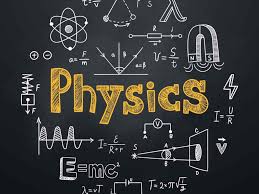The Fascinating World of Physics
Physics is the fundamental science that seeks to understand the behavior of the universe. It delves into the study of matter, energy, space, and time, providing explanations for the natural phenomena that surround us.
The Laws of Physics
At the core of physics are the laws and principles that govern the physical world. From Newton’s laws of motion to Einstein’s theory of relativity, these principles form the foundation upon which our understanding of the universe is built.
Branches of Physics
Physics is a vast field with several branches, each focusing on different aspects of nature. Some prominent branches include:
- Mechanics: The study of motion and forces.
- Thermodynamics: The study of heat and energy transfer.
- Electromagnetism: The study of electricity and magnetism.
- Quantum Mechanics: The study of particles at a subatomic level.
- Astrophysics: The study of celestial bodies and their interactions.
The Role of Physics in Society
Physics has played a crucial role in shaping modern society. It has led to technological advancements that have revolutionized how we live, work, and communicate. From electricity to telecommunications to space exploration, physics has paved the way for countless innovations.
The Quest for Knowledge
Physicists are driven by a curiosity to unravel the mysteries of the universe. They conduct experiments, formulate theories, and push the boundaries of human understanding. Through their work, they seek not only to explain how things work but also to uncover new phenomena that challenge our existing beliefs.
In Conclusion
Physics is a captivating field that continues to inspire awe and wonder in those who explore its depths. By studying physics, we gain insights into the underlying principles that govern our world and expand our appreciation for the beauty and complexity of nature.
Understanding Physics: Answers to Common Questions on Gravity, Magnetism, and More
- What is physics?
- What are the fundamental laws of physics?
- How does gravity work?
- What is the difference between classical physics and quantum physics?
- How do magnets work?
- What is the theory of relativity?
What is physics?
Physics is the branch of science that seeks to understand the fundamental principles governing the behavior of matter, energy, space, and time in the universe. It explores the interactions between objects and forces, aiming to explain natural phenomena through mathematical equations and experimental observations. Physics encompasses a wide range of topics, from the study of motion and electricity to quantum mechanics and astrophysics. Essentially, physics provides a framework for comprehending how the world around us works at its most fundamental level.
What are the fundamental laws of physics?
The fundamental laws of physics represent the cornerstone of our understanding of the natural world. These laws, such as Newton’s laws of motion, the law of conservation of energy, and Einstein’s theory of relativity, provide a framework for explaining the behavior of matter and energy in the universe. They govern everything from the motion of planets to the interactions between subatomic particles. By studying and applying these fundamental laws, physicists can unlock the secrets of the cosmos and make sense of the intricate workings of our reality.
How does gravity work?
Gravity is a fundamental force in the universe that governs the attraction between objects with mass. According to the theory of general relativity proposed by Albert Einstein, gravity is the result of massive objects bending the fabric of spacetime around them. This curvature created by mass causes objects to move along curved paths, which we perceive as the force of gravity pulling them towards each other. In essence, gravity works by warping the very structure of space and time, influencing how matter and energy interact in the vast cosmic dance of the universe.
What is the difference between classical physics and quantum physics?
Classical physics and quantum physics represent two distinct paradigms in the study of the physical world. Classical physics, rooted in the principles laid down by Newton and others, describes the behavior of macroscopic objects in a deterministic manner, where properties like position and momentum are well-defined. On the other hand, quantum physics deals with the behavior of particles at a subatomic level and is characterized by probabilistic outcomes, wave-particle duality, and phenomena such as superposition and entanglement. While classical physics provides a good approximation for everyday phenomena, quantum physics challenges our intuitive understanding of reality and opens up a realm of possibilities that continue to intrigue scientists and philosophers alike.
How do magnets work?
Magnets work due to the alignment of the magnetic domains within their material structure. These domains consist of groups of atoms with their magnetic fields pointing in the same direction. When a material becomes magnetized, these domains align, creating a magnetic field that extends around the magnet. This magnetic field interacts with other magnetic fields, such as those from other magnets or magnetic materials, resulting in attraction or repulsion between them. This phenomenon is governed by the fundamental principles of electromagnetism and plays a crucial role in various applications, from simple compasses to complex MRI machines.
What is the theory of relativity?
The theory of relativity, proposed by Albert Einstein in the early 20th century, is a groundbreaking concept that revolutionized our understanding of space, time, and gravity. There are two main components to the theory: special relativity and general relativity. Special relativity deals with the relationship between space and time in the absence of gravity, showing how they are interconnected and can be distorted by motion. General relativity extends this idea to include gravity, explaining how massive objects like planets and stars curve spacetime around them, affecting the paths of other objects. The theory of relativity has had profound implications for physics, cosmology, and our overall comprehension of the universe.

